Understanding TMJ Flare-Ups: Top Triggers and Your Path to Relief

Temporomandibular joint disorder affects over 10 million Americans, creating pain and discomfort that can dramatically impact daily life. For those living with TMJ in Marietta and surrounding areas, understanding what triggers flare-ups and knowing how to manage them can mean the difference between occasional discomfort and chronic, debilitating pain.
TMJ flare-ups don’t happen randomly. They’re typically triggered by specific factors that increase stress on your jaw joints, muscles, and surrounding tissues. Recognizing these triggers empowers you to take proactive steps to prevent episodes while knowing when professional intervention becomes necessary.
The good news is that many TMJ flare-ups can be effectively managed with proper understanding, home care techniques, and timely professional treatment when needed.
What Causes TMJ Flare-Ups
- Stress and Tension: Physical and emotional stress ranks among the most common triggers for TMJ episodes. When stressed, many people unconsciously clench their jaw muscles or grind their teeth, placing excessive pressure on the temporomandibular joints. This tension can persist even during sleep, leading to morning jaw pain and stiffness.
- Poor Sleep Posture: Sleeping in positions that strain your neck and jaw can trigger TMJ symptoms. Sleeping on your stomach with your head turned to one side, using too many pillows, or sleeping without proper neck support can misalign your jaw and create muscle tension.
- Teeth Grinding and Clenching: Bruxism, whether occurring during sleep or while awake, places enormous pressure on your TMJ. Many people grind their teeth in response to stress, anxiety, or sleep disorders, often without realizing they’re doing it until symptoms develop.
- Dietary Triggers: Hard, chewy, or tough foods can overwork your jaw muscles and joints. Foods like bagels, nuts, hard candies, tough meats, or even excessive gum chewing can trigger flare-ups in susceptible individuals.
- Hormonal Changes: Fluctuations in estrogen levels, particularly during menstruation, pregnancy, or menopause, can affect joint inflammation and pain sensitivity. Many women notice their TMJ symptoms worsen during certain times of their menstrual cycle.
- Weather Changes: Barometric pressure changes associated with weather fronts can increase joint pain and stiffness. Many TMJ sufferers report increased symptoms before storms or during seasonal transitions.
- Jaw Trauma: Previous injuries to the jaw, head, or neck can create long-lasting effects that predispose you to TMJ flare-ups. Even minor trauma from dental procedures or accidents can trigger episodes months or years later.
Additional Contributing Factors
- Poor Posture: Forward head posture, rounded shoulders, and slouching can affect the alignment of your jaw joints. Modern lifestyle factors like prolonged computer use, smartphone usage, and desk work often contribute to postural imbalances that trigger TMJ symptoms.
- Excessive Talking or Singing: Professions or activities that require extensive jaw use, such as teaching, singing, or public speaking, can overwork the temporomandibular joints and surrounding muscles.
- Dehydration: Inadequate hydration can affect joint lubrication and muscle function, potentially triggering TMJ symptoms. Dehydration also contributes to headaches, which often accompany TMJ flare-ups.
- Caffeine and Stimulants: Excessive caffeine consumption can increase muscle tension and anxiety levels, both of which can trigger jaw clenching and TMJ symptoms.
- Dental Issues: Misaligned teeth, poor bite relationships, or ill-fitting dental work can create uneven pressure on your jaw joints, leading to chronic TMJ problems and acute flare-ups.
Effective Home Management Strategies
- Ice and Heat Therapy: Apply ice packs to the affected area for 15-20 minutes during acute flare-ups to reduce inflammation and numb pain. After the initial inflammation subsides, gentle heat therapy can help relax muscle tension and improve blood flow.
- Gentle Jaw Exercises: Simple stretching and strengthening exercises can help maintain jaw mobility and reduce muscle tension. Open your mouth slowly and hold for a few seconds, then close gently. Side-to-side movements and gentle resistance exercises can also be beneficial.
- Stress Management: Practice relaxation techniques such as deep breathing, meditation, or progressive muscle relaxation. Managing overall stress levels often significantly reduces TMJ symptom frequency and severity.
- Dietary Modifications: Switch to softer foods during flare-ups to reduce jaw strain. Cut food into smaller pieces, avoid chewy or hard items, and limit wide mouth opening when eating. Stay hydrated and consider anti-inflammatory foods like fish, leafy greens, and berries.
- Sleep Hygiene: Maintain proper sleep posture by sleeping on your back or side with appropriate pillow support. Avoid sleeping on your stomach, and consider using a cervical support pillow to maintain proper neck alignment.
- Jaw Rest: Consciously rest your jaw by keeping your lips together and teeth slightly apart. This relaxed position reduces muscle tension and allows joints to decompress.
Massage and Self-Care Techniques
- Gentle Jaw Massage: Use your fingertips to apply gentle circular pressure to the muscles around your jaw joints. Start near your ears and work toward your jawline, spending extra time on tender areas.
- Neck and Shoulder Release: TMJ often involves tension in surrounding muscle groups. Gentle neck stretches and shoulder rolls can help reduce overall muscle tension that contributes to jaw pain.
- Posture Awareness: Throughout the day, check your posture and jaw position. Keep your shoulders back, head aligned over your shoulders, and jaw relaxed with teeth slightly apart.
- Mindful Breathing: Practice breathing exercises that promote relaxation and reduce overall tension. Focus on slow, deep breaths that help calm your nervous system and reduce muscle tension.
When Home Care Isn’t Enough
While many TMJ flare-ups respond well to conservative home treatment, certain symptoms indicate the need for professional evaluation and treatment.
- Persistent Pain: If jaw pain persists for more than a few days despite home treatment, or if pain is severe enough to interfere with eating, speaking, or sleeping, professional evaluation is warranted.
- Limited Jaw Movement: Difficulty opening your mouth, jaw locking, or significant restriction in jaw movement requires professional assessment to prevent permanent joint damage.
- Frequent Flare-Ups: If you experience TMJ symptoms more than occasionally, or if flare-ups are becoming more frequent or severe, underlying issues may need professional treatment.
- Associated Symptoms: Persistent headaches, ear pain, dizziness, neck pain, or numbness in your hands or arms often indicate TMJ requires professional management.
- Sleep Disruption: If jaw pain or teeth grinding disrupts your sleep regularly, professional treatment can address underlying causes and provide protective appliances.
- Previous Treatment Failure: If you’ve tried various home remedies or previous professional treatments without lasting relief, specialized TMJ treatment may be necessary.
The Importance of Professional TMJ Treatment
Professional TMJ treatment goes beyond symptom management to address underlying causes of joint dysfunction. Advanced diagnostic techniques can identify specific factors contributing to your TMJ disorder, enabling targeted treatment approaches.
Custom oral appliances can protect your teeth from grinding damage while repositioning your jaw for optimal alignment. These devices are specifically designed for your unique bite relationship and can provide significant relief from TMJ symptoms.
Bite adjustments and other dental treatments can correct alignment issues that contribute to TMJ dysfunction. When teeth don’t fit together properly, it creates uneven pressure on jaw joints that can trigger chronic problems.
Professional treatment also provides education about lifestyle modifications and exercises specific to your condition, empowering you to better manage symptoms and prevent future flare-ups.
Advanced Treatment Options
Modern TMJ treatment offers various non-invasive options that can provide lasting relief. Custom bite guards stabilize jaw alignment while protecting teeth from grinding damage. These appliances are designed to promote proper jaw positioning and reduce muscle tension.
Conservative bite adjustments can eliminate interference patterns that contribute to TMJ dysfunction. By ensuring teeth come together evenly, these adjustments reduce stress on jaw joints and muscles.
For more complex cases, restorative treatments like crowns or orthodontics may be recommended to achieve optimal bite relationships and long-term TMJ stability.
Preventing Future Flare-Ups
Understanding your personal triggers enables proactive prevention strategies. Keep a symptom diary to identify patterns between activities, stress levels, foods, or other factors and your TMJ symptoms.
Develop healthy stress management habits including regular exercise, adequate sleep, and relaxation techniques. Since stress is a major TMJ trigger, managing it effectively often significantly reduces symptom frequency.
Maintain good posture throughout the day, especially during computer work or other prolonged activities. Regular posture breaks and ergonomic adjustments can prevent muscle tension that contributes to TMJ problems.
Frequently Asked Questions About TMJ Flare-Ups
- How long do TMJ flare-ups typically last? With proper home care, mild flare-ups often resolve within a few days to a week. Severe episodes may persist longer and require professional treatment.
- Can TMJ symptoms get worse over time? Yes, untreated TMJ disorder often worsens progressively, which is why early intervention and proper management are important for long-term joint health.
- Are there foods I should avoid with TMJ? During flare-ups, avoid hard, chewy, or tough foods. Limit gum chewing and cut food into smaller pieces to reduce jaw strain.
- Can stress alone cause TMJ flare-ups? Absolutely. Stress-induced jaw clenching and teeth grinding are among the most common triggers for TMJ episodes.
- When should I see a dentist for TMJ symptoms? Seek professional evaluation if symptoms persist beyond a few days, interfere with daily activities, or occur frequently despite home care efforts.
Take Control of Your TMJ Symptoms Today
Don’t let TMJ pain control your life. Understanding your triggers and implementing appropriate home care strategies can significantly improve your symptoms and quality of life. Dr. Wayne Suway in Marietta specializes in conservative, effective TMJ treatment that addresses underlying causes while providing lasting relief for patients throughout the Atlanta area.
Posted on behalf of
1820 The Exchange SE, #600
Atlanta, GA 30339
Phone: (770) 953-1752
FAX: (770) 953-6470
Mon - Thu: 8:30 AM – 5:30 PMClosed for lunch: 12:30 PM - 1:30 PM









